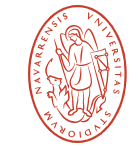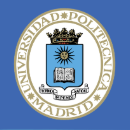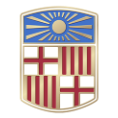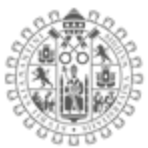Detailed introduction of the Autonomous University of Barcelona:
Introduction
The Autonomous University of Barcelona, also known as Universitat Autònoma de Barcelona in Catalan and Universidad Autónoma de Barcelona in Spanish, abbreviated as UAB, is a world-renowned public research university in Spain, located in Barcelona, the capital of the Autonomous Region of Catalonia.
Overview
The university has a wide range of disciplines, covering humanities, social sciences, health sciences, experimental sciences, technology and engineering sciences, etc., providing students with a wide range of professional choices. The school has more than 3,600 academic researchers, including more than 1,600 scholars from 56 countries. Its high degree of internationalization makes it highly competitive in the global education field.
History and establishment time
The Autonomous University of Barcelona was founded in 1968.
School strength
Faculty: The school has a strong faculty team, with many experts and scholars with profound attainments in various disciplines. These teachers not only have solid professional knowledge, but also have rich teaching and scientific research experience. They can provide students with high-quality education and guidance, and help students achieve good results in academic research and professional development.
Teaching facilities: Equipped with first-class teaching equipment and laboratories, it provides a solid material foundation for students' learning and research. Its library has a rich collection of books and complete database resources, which can meet the needs of students to consult materials and conduct academic research. In addition, the school continues to update and improve teaching facilities to meet the needs of evolving teaching and scientific research.
Scientific research results: As one of the top research universities in Spain, the Autonomous University of Barcelona has achieved fruitful results in scientific research. The school's research covers multiple disciplines. Its research results in veterinary medicine, economics, sociology, anthropology, art and design have a high international influence, promoting the development of related disciplines and providing important theoretical support and technological innovation for solving practical social problems.
Nature of the institution
Public university.
Educational philosophy
Focus on cultivating students' innovation ability, practical ability and social responsibility, emphasizing academic freedom and interdisciplinary research, and encouraging students to actively participate in scientific research projects and social practice activities to cultivate high-quality talents with global vision, innovative thinking and social responsibility, so that they can contribute to social development in their future careers.
Key laboratories and disciplines
Key disciplines: Economics, business management and tourism majors are the most famous, ranking first in Spain and among the top 86 in the world business rankings. In addition, according to the 2018 QS World University Rankings by Subject, the university also ranks among the top 100 in the world in 15 subject areas, including veterinary medicine, sociology, anthropology, art and design, modern linguistics, agricultural sciences, anatomy, environmental sciences, geography, physics, communication, education, archaeology, social policy and sports research.
Key laboratories: It has a number of important research institutions and laboratories, such as the Center for Prehistoric Archaeological Heritage Research, the Institute of Educational Sciences, the Institute of Neuroscience, etc., which provide important support for scientific research in related disciplines and promote the development of disciplines and the transformation of scientific research results.
Faculty
There are 13 academic departments, including biological sciences, natural sciences, communication, education, political science and sociology, law, economics and business research, engineering, philosophy and art, medicine, psychology, translation and interpretation, veterinary medicine, etc. In addition, there are about a dozen independent centers and schools, such as St. Paul's School of Nursing, School of Tourism and Hotel Management, and Graduate School of Archives and Records Management.
Ranking
QS World University Rankings 2025: Ranked 175th Rank.
2022 U.S. News World University Rankings: 144th.
2022 Times Higher Education World University Rankings: 170th.
Expenses
Tuition fees: For international students from non-EU and non-EEA countries, tuition fees are relatively high. Tuition fees for different majors vary, and the general master's tuition fee is about 15,000-18,950 euros/year.
Living expenses: The cost of living in Barcelona is relatively high, including accommodation, food, transportation and other expenses. In terms of accommodation, the cost of school dormitories ranges from about 120-200 pounds per week, and the cost of renting off-campus housing is roughly at a similar level. Other living expenses such as food and transportation are about 300-500 euros per month.
Campus environment
Campus distribution: There are three campuses in Spain, namely Bellaterra, Sabadell and Sant Pau. The main campus is located in the town of Bellaterra on the outskirts of Barcelona. It has convenient transportation and is connected to Barcelona by trains, buses and other means of transportation. The main campus of the university can be reached from the city center within 35 minutes.
Campus facilities: The campus is vast, covering an area of 260 hectares. The campus is shaded by trees and green grass, and the environment is beautiful and pleasant. The school has teaching and research centers, scientific research institutions, libraries, laboratories, student and teacher dormitories, student restaurants of various colleges, a three-star hotel for internships for students of the School of Tourism, and various commercial and health service facilities. It is a well-equipped university town.
Cultural and sports facilities: The school has established an urban department in the rehabilitation building of the former St. Paul Hospital in the city of Barcelona. The building is a human cultural heritage established by UNESCO. In addition, the school has its own cultural and art center to support artistic creation and promote various literary and artistic activities including dance, drama, music, film, literature, etc. In terms of sports, there are sports facilities such as football fields, tennis courts, swimming pools, climbing walls, squash courts, gyms and saunas, providing students with a wealth of sports venues and medical services.
-

University of Navarra
-

Autonomous University of Madrid
-

Polytechnic University of Catalonia
-

CEU University of San Pablo
-

Technical University of Madrid
-

University of Lleida
-

University of Barcelona
-

University of Oviedo
-

University of Valladolid
-

University of Salamanca
-

Mesoamerican University
-

Istmo University
-

Mariano Galvez University of Guatemala
-

Regional University of Guatemala
-

Galileo University
-

Francisco Marroquín University
-

Rafael Landívar University
-

University of the Valley of Guatemala
-

University of San Carlos of Guatemala
-

Technological Institute of Tlaxcala Plateau
-

Golfo University
-

Technological University of South Sonora
-

Technological University of Huejotzingo
-

Tizimín Institute of Technology
-

Chilpancingo Institute of Technology

